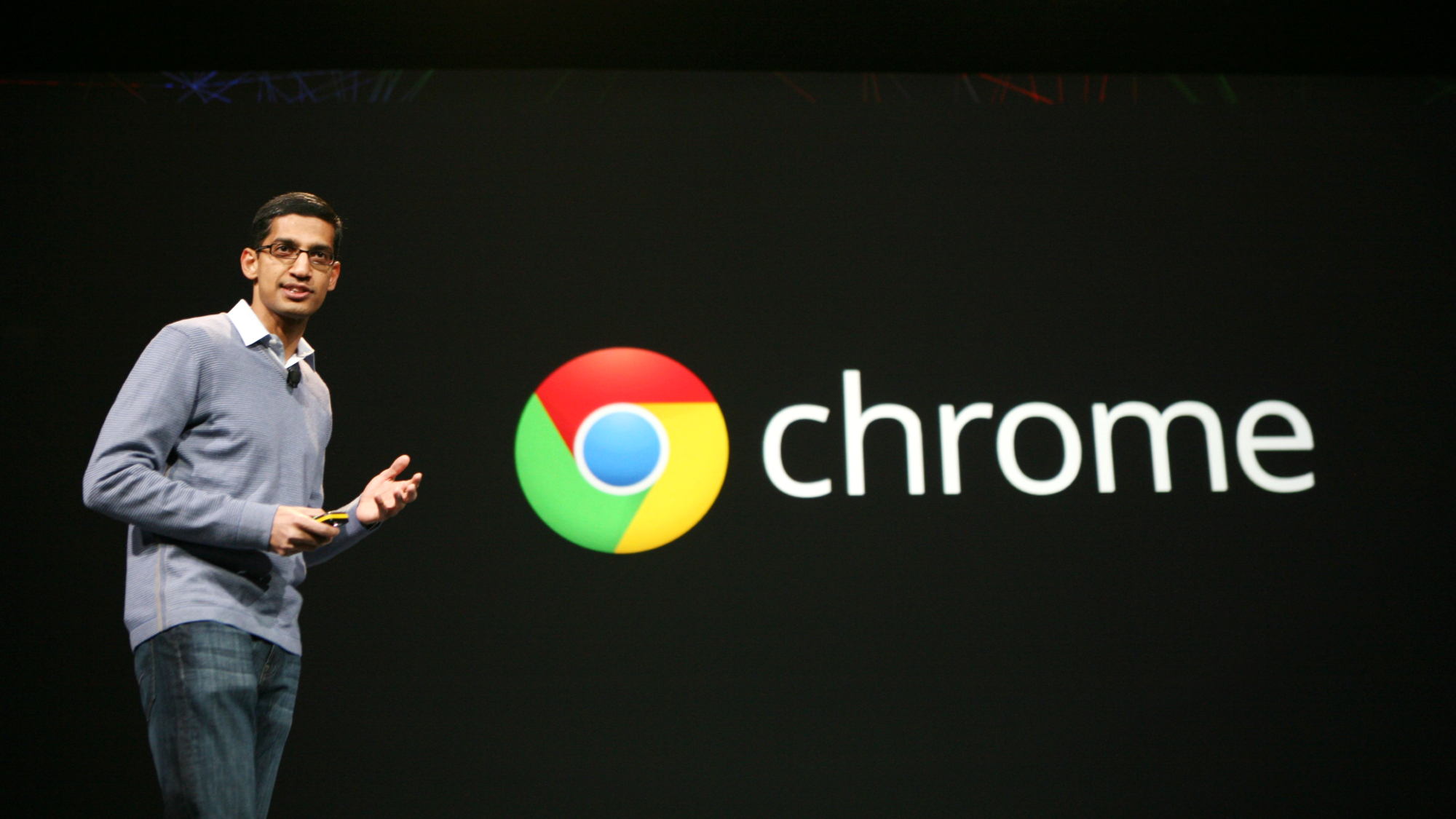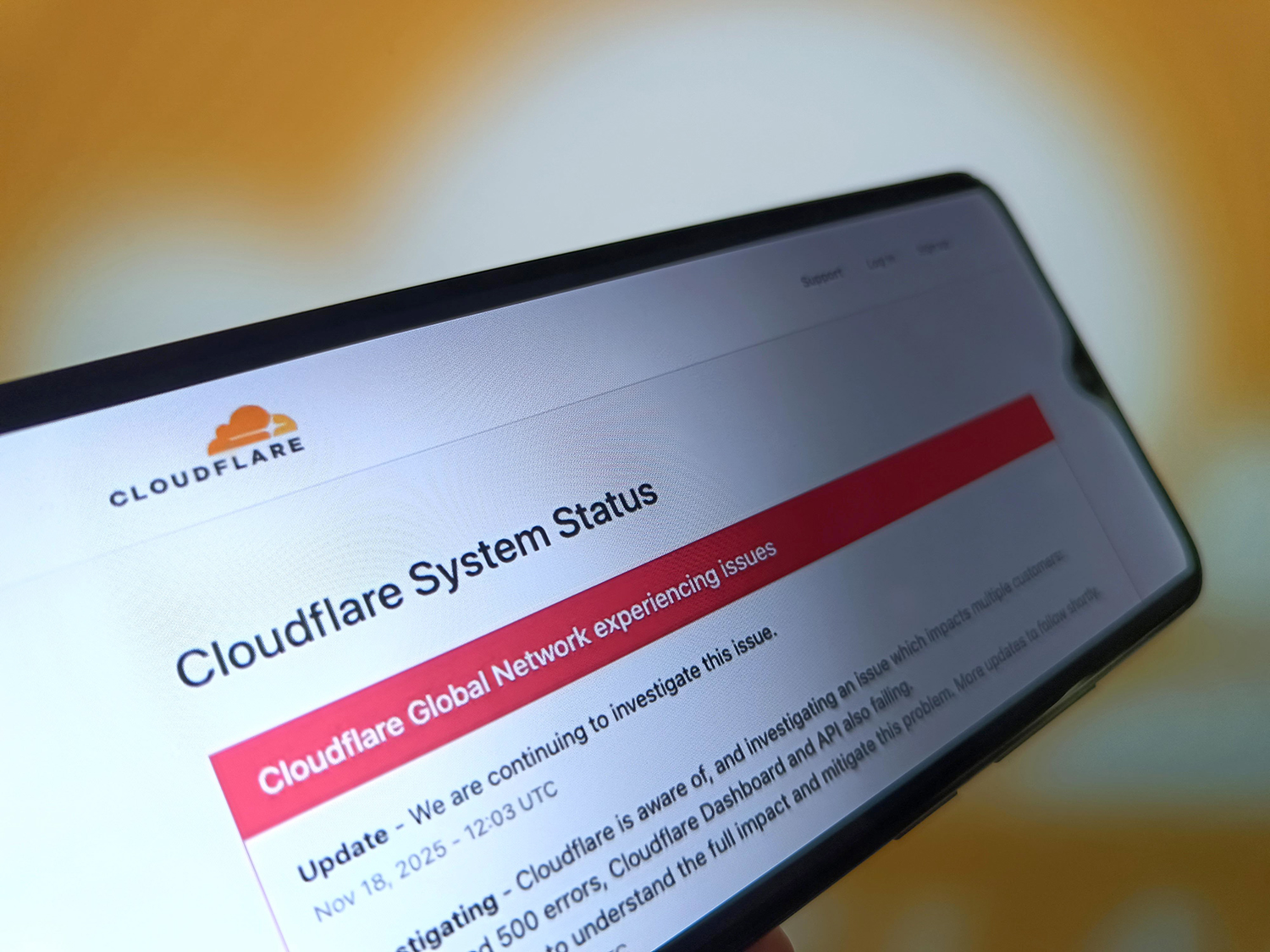DOJ seeks breakup of Google, Chrome
The Justice Department aims to force Google to sell off Chrome and make other changes to rectify its illegal search monopoly


A free daily email with the biggest news stories of the day – and the best features from TheWeek.com
You are now subscribed
Your newsletter sign-up was successful
What happened
The Justice Department Wednesday night asked a federal judge to order Google to sell off its popular Chrome browser and, potentially, its Android mobile operating system to level the playing field in internet search.
U.S. District Judge Amit Mehta, who is overseeing the government's sweeping antitrust case against the search giant, ruled in August that Google was a monopolist.
Who said what
Being forced to sell Chrome, with an estimated 67% of the world's browser market, and Android, with about 71% of the smartphone market, "would be among the worst possible outcomes for Google," The New York Times said. Google, the default search engine on Chrome and Android, handles about 90% of the world's web searches, according to Statcounter. Search engines "typically improve based on the data they gather from searches conducted by users," The Wall Street Journal said, creating a "cycle where success leads to higher quality, which leads to even more success."
The Week
Escape your echo chamber. Get the facts behind the news, plus analysis from multiple perspectives.

Sign up for The Week's Free Newsletters
From our morning news briefing to a weekly Good News Newsletter, get the best of The Week delivered directly to your inbox.
From our morning news briefing to a weekly Good News Newsletter, get the best of The Week delivered directly to your inbox.
"The playing field is not level because of Google's conduct, and Google's quality reflects the ill-gotten gains of an advantage illegally acquired," the Justice Department said. "The remedy must close this gap and deprive Google of these advantages." Along with splitting off Chrome, prosecutors asked Mehta to bar Google from favoring its services on Android and end its multibillion-dollar deals with Apple and other companies to make Google the default search engine on their browsers.
The payments to lock in Google search on other platforms was "one of the main practices that bothered Mehta," but it's "less clear" if he would embrace the DOJ's breakup proposal, The Associated Press said. An appeals court "overturned an order that would have broken up Microsoft" in 2001, and that may "make Mehta reluctant to go down a similar road." If he did, Google would be the "first big tech company broken up under federal antitrust law since AT&T in 1982," The Washington Post said.
What next?
Google has a month to respond with its own proposal for Mehta, who plans to hold hearings on Google's punishment starting in April and issue his decision in August. Google's likely appeal of that ruling could delay any sanctions for months or years, and President-elect Donald Trump's incoming antitrust team is another wild card.
A free daily email with the biggest news stories of the day – and the best features from TheWeek.com
Peter has worked as a news and culture writer and editor at The Week since the site's launch in 2008. He covers politics, world affairs, religion and cultural currents. His journalism career began as a copy editor at a financial newswire and has included editorial positions at The New York Times Magazine, Facts on File, and Oregon State University.
-
 The Week Unwrapped: Do the Freemasons have too much sway in the police force?
The Week Unwrapped: Do the Freemasons have too much sway in the police force?Podcast Plus, what does the growing popularity of prediction markets mean for the future? And why are UK film and TV workers struggling?
-
 Properties of the week: pretty thatched cottages
Properties of the week: pretty thatched cottagesThe Week Recommends Featuring homes in West Sussex, Dorset and Suffolk
-
 The week’s best photos
The week’s best photosIn Pictures An explosive meal, a carnival of joy, and more
-
 Will AI kill the smartphone?
Will AI kill the smartphone?In The Spotlight OpenAI and Meta want to unseat the ‘Lennon and McCartney’ of the gadget era
-
 TikTok finalizes deal creating US version
TikTok finalizes deal creating US versionSpeed Read The deal comes after tense back-and-forth negotiations
-
 Data centers could soon be orbiting in space
Data centers could soon be orbiting in spaceUnder the radar The AI revolution is going cosmic
-
 AI griefbots create a computerized afterlife
AI griefbots create a computerized afterlifeUnder the Radar Some say the machines help people mourn; others are skeptical
-
 Australia’s teen social media ban takes effect
Australia’s teen social media ban takes effectSpeed Read Kids under age 16 are now barred from platforms including YouTube, TikTok, Instagram, Facebook, Snapchat and Reddit
-
 Separating the real from the fake: tips for spotting AI slop
Separating the real from the fake: tips for spotting AI slopThe Week Recommends Advanced AI may have made slop videos harder to spot, but experts say it’s still possible to detect them
-
 Blackouts: Why the internet keeps breaking
Blackouts: Why the internet keeps breakingfeature Cloudflare was the latest in a string of outages
-
 Has Google burst the Nvidia bubble?
Has Google burst the Nvidia bubble?Today’s Big Question The world’s most valuable company faces a challenge from Google, as companies eye up ‘more specialised’ and ‘less power-hungry’ alternatives
